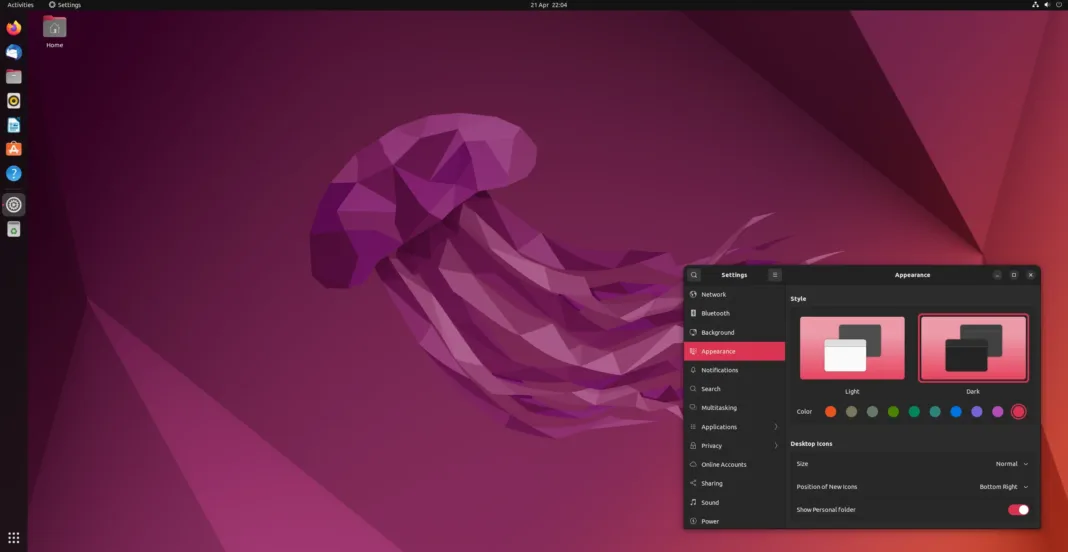An all-snap unchangeable version of the Linux distribution Ubuntu, which is credited with making Linux popular and approachable to the general public, will be made available for desktop computers. This decision, which tries to address some of the objections and issues surrounding snaps, Ubuntu’s universal package format, may mark a turning point for the Linux distribution. This essay will examine Ubuntu’s ambitions for the all-snap, immutable desktop, the advantages of an immutable distribution, and any possible effects this may have on how the Linux community views snaps.
Table of Contents
Photographs and their Critics
Snaps are Ubuntu’s cross-distro package format that eliminates the need for developers to create their applications specifically for a given Linux distribution. Snaps have drawn flak for being slower than native packages, although having the benefit of compatibility. Furthermore, criticism has been leveled at Canonical’s Snap Store for having a monopoly on the distribution of Snap packages. These elements have caused other distributions to favor other package formats like Flatpak.

The Development of Impermeable Distros
Immutable distributions, in which the root file system cannot be changed without a special operation, have drawn interest in the Linux community for their benefits in terms of security and reliability. These distributions use containerized package formats to install software, such as Flatpak or Snaps, preventing modifications made by apps from affecting the root file system. Successful immutable distributions include Silverblue from Fedora and microOS from openSUSE.
Plans for an All-Snap Immutable Desktop
Canonical’s Oliver Grawert responded to a story about Ubuntu’s intentions to provide the CUPS printing stack as a snap by saying that the company would produce an immutable desktop version based on the all-snap UbuntuCore. The read-only file system, transactional updates, and simple change rollback are among the features that the all-snap immutable version seeks to offer. Although Ubuntu Core was introduced in 2015 and is already built on snaps, it was not specifically created for desktop use and is primarily intended for IoT and embedded devices.
Advantages and Potential Effects
Ubuntu’s adoption of an all-snap immutable desktop distribution has a number of advantages. It offers improved security and dependability thanks to a read-only file system, ensures transactional updates to reduce the possibility of system instability, and enables simple change rollback in the event of problems. The popularity of immutable distributions is rising, as evidenced by the success of Fedora Silverblue and openSUSE microOS.
The acceptance and reception of the all-snap, immutable version of Ubuntu may determine the long-term success or failure of snaps. If the immutable desktop distro is successful and popular, it may alter public opinions of snaps and highlight their potential advantages. It also fits in with the immutable distro trend and gives Ubuntu consumers another version to try out.
The benefits of immutable distros in terms of security and stability have attracted the attention of the Linux community. These distributions use containerized package formats to install software, such as Flatpak or Snaps, preventing modifications made by apps from affecting the root file system. With its introduction into the immutable distro market, Ubuntu follows the trend and provides advantages such as a read-only file system, transactional updates, and simple change rollback.
The adoption and reception of the all-snap immutable version may determine whether Ubuntu’s snaps succeed or fail. If the immutable desktop distro is successful and popular, it may alter public opinions of snaps and highlight their potential advantages. Immutable distributions have previously shown their promise, as have Fedora Silverblue and openSUSE microOS, and Ubuntu’s entry into this space may encourage more users to adopt this strategy.
Finally, The Linux distribution will advance significantly with Ubuntu’s ambitions to offer an all-snap immutable version of Ubuntu for desktop computers. An immutable distro might answer some of the critiques that snaps have previously received and highlight the benefits of snaps in terms of security, stability, and usability. The success of immutable distributions like Fedora Silverblue and openSUSE microOS has shown their potential, and Ubuntu’s arrival into this market may encourage more people to use this strategy. The Linux world is keenly awaiting the effects that Ubuntu’s adoption of the all-snap, the immutable desktop will have on how snaps are perceived and will develop in the future.
Disclaimer:
AI was used to conduct research and help write parts of the article. We primarily use the Gemini model developed by Google AI. While AI-assisted in creating this content, it was reviewed and edited by a human editor to ensure accuracy, clarity, and adherence to Google's webmaster guidelines.





